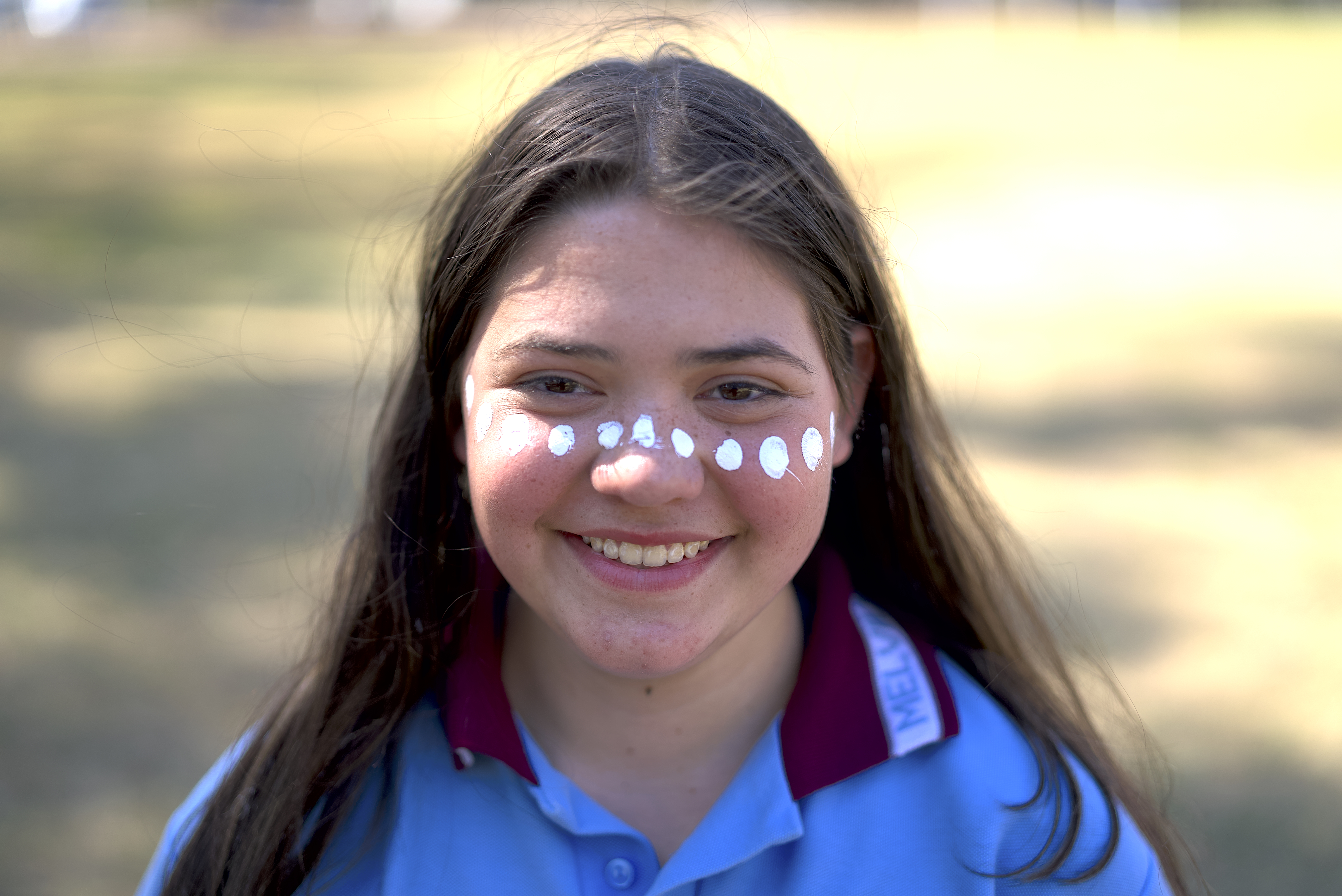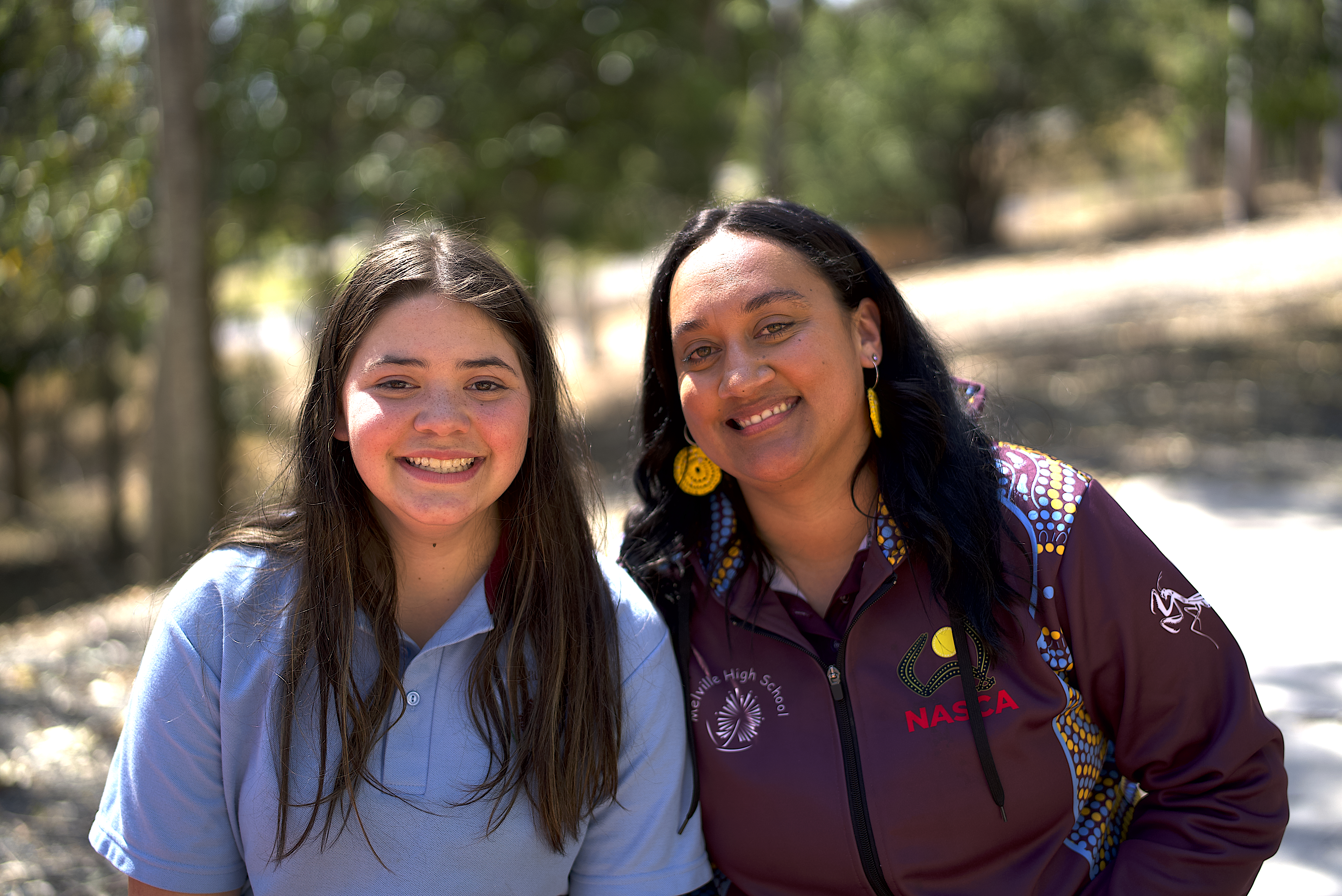Safety and cultural connection

Amalie had a tough few years at school, but things began to shift for her when she joined NASCA and found not only safety, but a way to connect to her Culture. It ended up making all the difference.
“If NASCA wasn’t here I would probably be suspended or expelled at this point,” says Amalie.
“My anger was so bad, I was just a wreck at school and outside of school. I was having the worst experiences, it was really hard.”
Amalie, a proud Dunghutti and Gumbaynggirr young woman currently in year 10 at Melville High School has had a tough time at school the last few years.
“In years seven and eight I was really badly bullied, people were picking on me so I would get angry. Then last year was really hard because my Pop had passed away, I was very lost, but Rosie was there to help me through it.”
Rosie Fatnowna, NASCA Team Leader at Melville High School has been supporting Amalie for just over two years now, and in that time the pair have grown incredibly close.
“Rosie is my go-to person, she is my support person. She talks to me like a friend or a Mum would, she is very calming. With Rosie I feel very respected, and safe, she understands me,” says Amalie.
School can be a tough place for many, but for Aboriginal and Torres Strait Islander young people who are dealing with a multitude of intersectional issues, it can end up being overwhelmingly difficult. Having an extra support system and sense of safety can make all the difference.

“If I’m having trouble I can always come to Rosie or one of the other NASCA girls and they will help me through it. I get in-class support, if I’m running late on assignments I will come down to NASCA and they will help me with them, if I’m having trouble with teachers or other students I will come straight to NASCA and Rosie will talk with me, and calm me down.
“Having that safe place is important because you dont find that anywhere else,” says Amalie.
Rosie agrees.
“This kind of support is something that not a lot of my generation had, it’s something we should be offering so these young women do not feel so alone, and so they know there are things they can achieve, and things that they can dream for,” says Rosie.
These days school is a much more positive experience for Amalie. She says she has far fewer outbursts and is getting along better with her teachers and peers. Amalie credits this shift not only to the one-on-one support she has received from Rosie but to the opportunities she’s gotten through NASCA to connect to her Culture.
“Doing cultural activities with NASCA makes me realise I’m not as lost as I thought I was. I have my Country, I know who I am, I know what I am. For me, I felt like something was missing until that point when I came of age and really started connecting to my Culture, as soon as that happened I felt at peace, the world had shifted and everything was right,” says Amalie.
Looking ahead, the future seems bright for Amalie. She has worked through the tough times and come out the other side stronger and with a new found sense of self.
“The last couple of years have been tough for Amalie, you could see that burden on her shoulders but that’s lifting now. I’m looking forward to seeing her be a leader in the school, because I know she can do it, and I’ll be here to support her in whatever she wants,” says Rosie.
“Seeing the NASCA workers and how they are all so in tune with each other, and the type of stuff they do at schools to help young Indigenous kids. I want to do that one day.”
